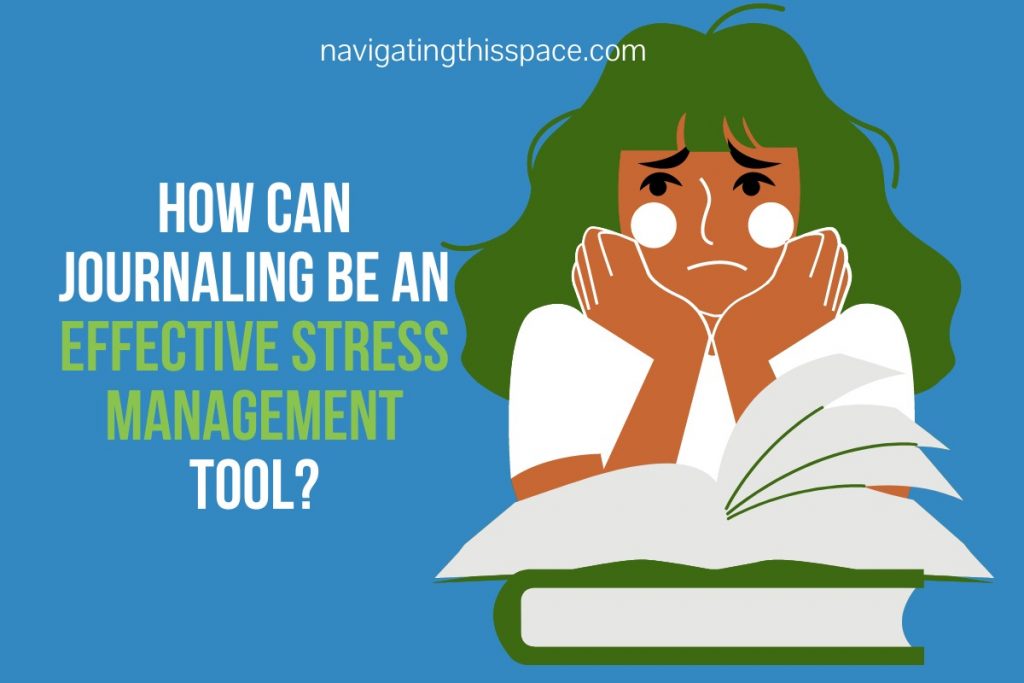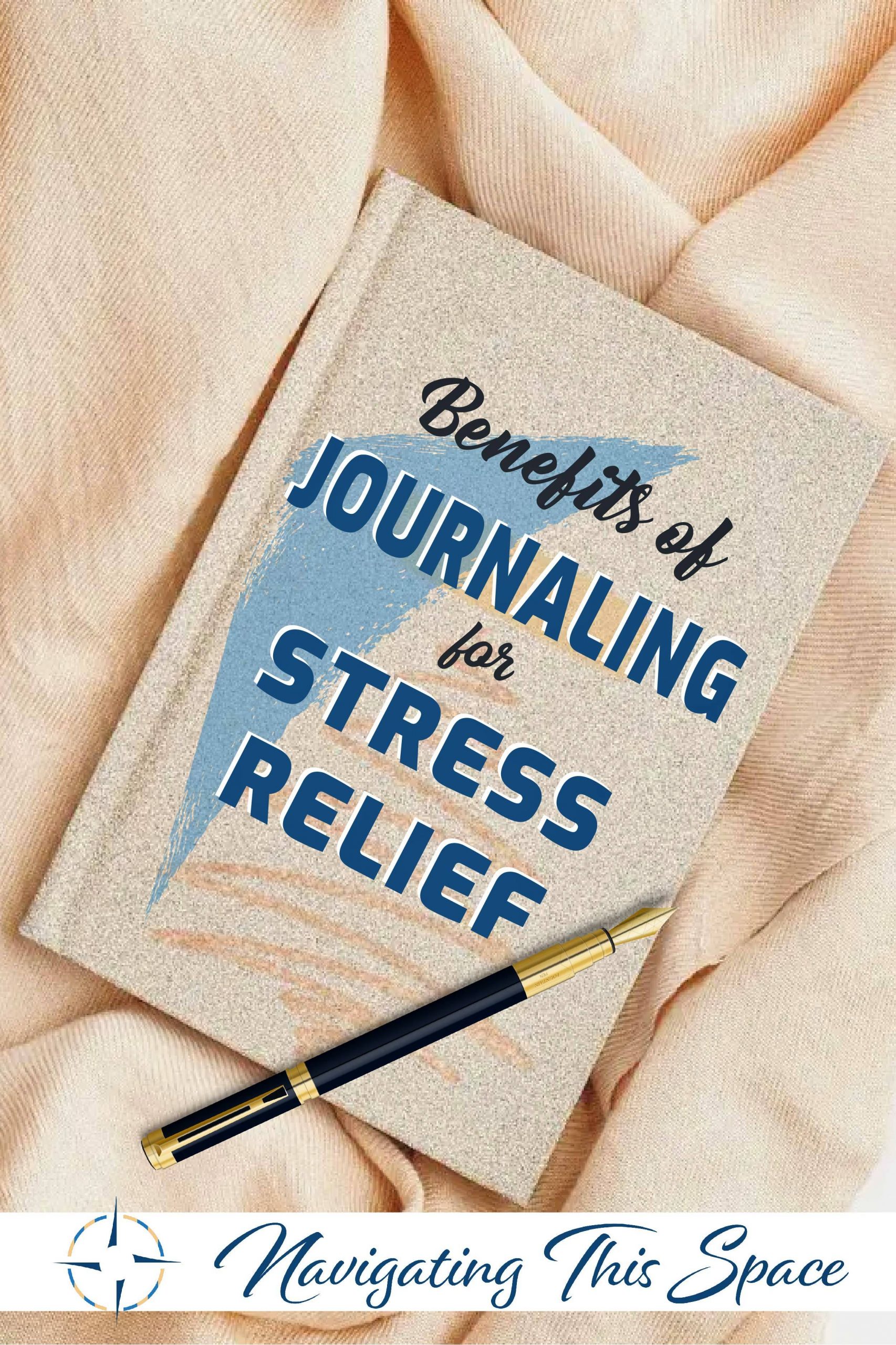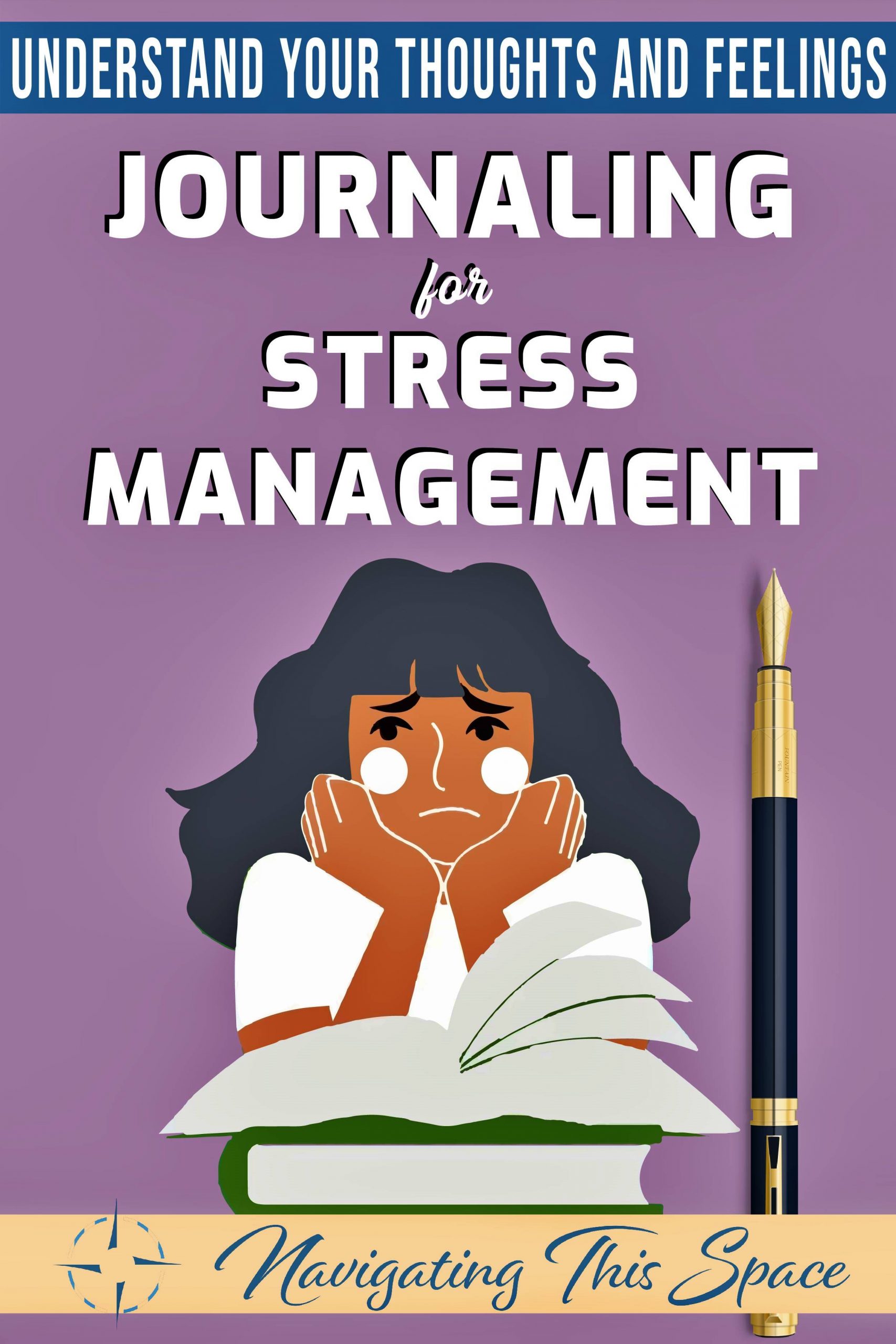You may be feeling overly stressed lately, and you’re unsure why. Working hard to keep up with school, work, and social life can be challenging when nothing seems to be going your way. You’ve tried all of the usual stress-relief methods, like working out and listening to music, but nothing seems to be helping. If this sounds like you, journaling for stress relief may be the solution you’re looking for.
When it comes to stress, everyone experiences it in different ways, and not knowing how to manage your stress effectively can lead to problems like feeling overwhelmed, anxious, and irritable.
Some people struggle with the physical manifestations of stress like headaches, stomachaches, and chest pain. If you find yourself frequently experiencing any of these symptoms, it’s crucial to find an effective way to relieve your stress.
This is where journaling may be able to help.
By writing down your thoughts and feelings, you can begin to take back control of your life, get out of your head and start to work through the issues causing you stress.
Not only will this help you to understand your stress better, but it can also help you to find ways to manage your stress more effectively.
In this article, we will discuss how journaling can be an effective way to relieve stress. By writing down your thoughts and feelings, you can work through any issues that are causing you stress.
- How Can Journaling Be an Effective Stress Management Tool?
- How Does Journaling Affect the Brain?
- Benefits of Journaling for Stress Management
- How To Get Started
- Journaling Prompts for Stress Management
- Relieve Stress With Journaling Today!
- Questions You May Have
How Can Journaling Be an Effective Stress Management Tool?

When it comes to stress, there are a lot of different methods you can use to try and relieve it.
You may work out, listen to music, dance around, or talk to your friends and family. However, one of the most underrated methods is journaling.
Journaling can be an effective way to relieve stress for several reasons.
Understand Your Thoughts and Feelings
First, journaling can help you to understand your thoughts and feelings better. It can be tricky to make sense of everything that’s going on in your head because your thoughts are constantly changing.
By writing them down, you can analyze your stressors more clearly and create a plan to work through them constructively. Journaling helps you to identify patterns in your actions and thoughts that may be contributing to your stress.
For example, if you’re constantly worrying about things that haven’t happened yet, journaling can help you to see this pattern and work on changing it.
Release Pent-Up Emotions
Second, journaling can also help you to release any pent-up emotions you may be feeling. You can say whatever you want in your journal without being mindful of someone else’s perception.
Boost Your Confidence
Third, journaling can also help to boost your self-confidence and self-esteem. When you fully understand yourself and why you do the things you do, you’ll become more confident in your abilities.
Moreover, once you start seeing the positive changes journaling makes in your life, your self-esteem will naturally increase.
How Does Journaling Affect the Brain?
Research has shown that journaling can help reduce stress, improve mental clarity, and boost your mood. With mental health benefits like these, it’s no wonder that journaling is becoming more popular.
So how does journaling affect the brain?
- Journaling helps reduce stress by changing how you react to stressful situations.
- Journaling can improve your mental clarity by helping you to organize and understand your thoughts and feelings.
- Journaling boosts your mood by releasing pent-up emotions and increasing self-confidence, which helps to combat negative thinking.
- Journaling also activates the areas of your brain responsible for creativity and problem-solving.
- Finally, journaling provides a way to externalize negative thoughts, which can help to prevent them from taking over your mental space.
Recommended Article: A 30-Day Journal Challenge to Banish Negative Thoughts
How Does Writing Relieve Stress?
Writing can be a helpful way to manage stress.
When we are under stress, our bodies go into the “fight or flight” mode, which releases hormones like adrenaline and cortisol. This can lead to physical symptoms like increased heart rate and tense muscles.
Writing can help to counteract these effects by giving you a chance to express what you’re feeling. You may think it’s pointless to write what you’re feeling but releasing that energy from your body will help you to feel better.
Writing can also help you make sense of your thoughts and feelings, which can be helpful if you’re feeling overwhelmed. Once you get everything out on paper, you may find it’s not as bad as you thought.
Writing always makes me feel better when worrying or stressing about something I don’t know how to deal with. It’s like unloading a heavy burden that I didn’t even realize I was carrying around.
If you’re feeling stressed, try journaling for stress relief. You may be surprised at how effective it can be!
Benefits of Journaling for Stress Management

– Allows for safe and healthy emotional expression
– Promotes self-awareness and understanding
– Allows you to reflect on your day and identify triggers and patterns
– Fosters a sense of control and mastery over stressors
– Can improve sleep quality
– Helps to boost your mood and increase self-confidence
– Can increase creativity and problem-solving ability
– Provide a great way to externalize negative thoughts
– Helps identify areas of your life that need attention
– Serve as a form of self-care
Recommended Article: The Long-Term and Short-Term Benefits of Journaling
How To Get Started
Step 1. Choose a Journal That Speaks to You
This can be a physical journal or a digital one. I recommend choosing a physical journal because the benefits of writing on paper are superior to those of typing on a computer.
If you choose a physical journal, make sure that it’s one that you enjoy writing in. Your journal should feel inviting and make you want to write. Some people prefer journals with lined or dotted pages, while others prefer blank pages.
I prefer blank pages because they allow me the freedom to write in any direction and include drawings and other creative elements.
Whatever journal you choose, make sure that it’s one that you’ll be excited to write in.
Recommended Article: The Benefits Of Handwriting vs Typing
Step 2. Set Aside Some Time Each Day To Journal.
This doesn’t have to be a lot of time, and 5–15 minutes will do. The important thing is to be consistent and to journal every day or every other day.
Step 3. Write
The beauty of journaling is that there are no rules. You can write about whatever you want, whenever you want.
Some people like to journal in the morning to start their day. Others prefer to journal at night to process their day and wind down before bed.
I like to journal in the morning before I start my day because it allows me to set my intention for the day, record my vivid dreams before they fade from memory, and journal about any ideas or insights that I had during the night.
Recommended Article: The Five Minute Journal for Beginners: How to Write Every Day!
Journaling Prompts for Stress Management
If you’re not sure what to write about, here are some journaling prompts for inspiration to get you started:
-Make a list of all the things that need my attention for the next three days.
-What item on the list is causing me the most stress right now?
-What happened today that changed my mood and caused me to start worrying?
– How can I reframe this situation in a more positive light?
– What can I do right now to start working on solving this problem?
– What is the worst-case scenario, and how can I prepare for it?
– What is the best case scenario, and how can I make it more likely to happen?
Relieve Stress With Journaling Today!
If you’re feeling stressed, journaling can be a great way to relieve some of the stress. By writing down your thoughts and feelings, you can begin to work through any issues causing you stress.
Journaling requires nothing more than a pen, a paper, and a little bit of your time, so give journaling a try today and see how it can help you manage your stress more effectively!
In the comments below, let us know how journaling has helped you to relieve stress.
Questions You May Have
Does journaling help relieve stress?
Journaling can help you to develop coping mechanisms for dealing with stressful situations. By taking the time to brainstorm solutions to your problems, you can start to feel more in control and less stressed. Journaling may not solve all of life’s problems. However, it certainly helps to ease the burden.
How do you start a journal for stress relief?
First, choose a journal that speaks to you, one that you’ll enjoy writing in. Second, set aside some time each day or every other day to journal. Third, write about what’s stressing you out so you can brainstorm solutions to tackle them one by one.
How can writing relieve stress?
Writing provides an outlet for your thoughts and feelings. It can help you to make sense of what’s going on in your life and help you develop a plan to deal with it. Additionally, writing is a form of self-care to relax and de-stress.
Do people really see results from journaling?
Yes! Journaling has been shown to provide a host of benefits, including reducing stress, improving mood, and increasing self-awareness. If you commit to journaling regularly, you’re likely to see some positive results in your life. Give it a try and see for yourself!
Pin It!





